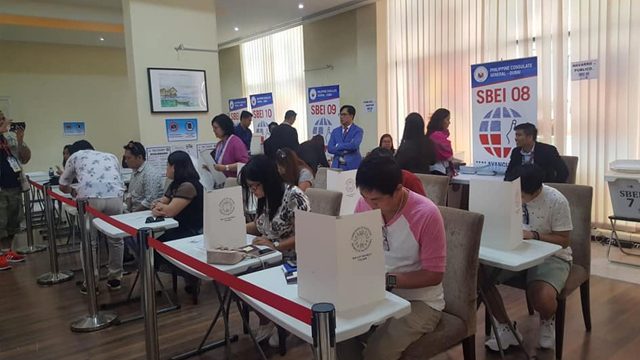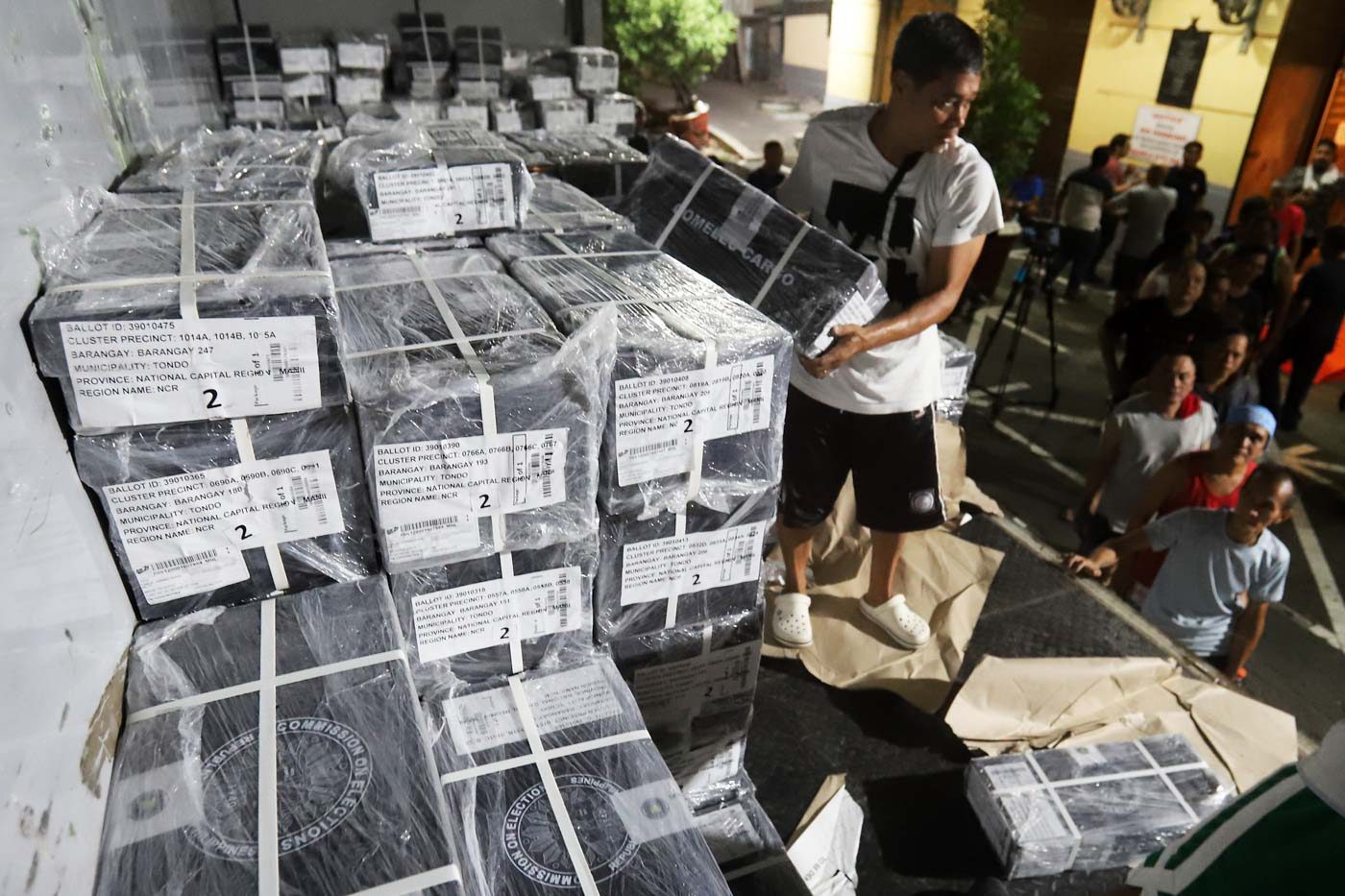SUMMARY
This is AI generated summarization, which may have errors. For context, always refer to the full article.

MANILA, Philippines – While elections are a time for choosing our leaders, voters in several provinces, cities, and municipalities won’t have much of a choice over who will lead them in the next 3 years, as over 500 candidates are running unopposed in the 2019 elections.
Data from the Commission on Elections (Comelec) showed there are 548 unopposed candidates vying for the positions of governor, vice governor, district representative, mayor, and vice mayor in the May polls.
Unopposed candidates often face “assured victories” as the law states that they only need at least one vote to win. In a scenario like this then, even if majority of voters were to abstain, chances are the candidate would still end up getting elected.
Who are these candidates? Rappler’s list, based on Comelec data, show there are at least 36 of them running for a seat in the House of Representatives, 8 for governor, and 14 for vice governor. They are the following:
Meanwhile, there are also 211 candidates running unopposed for mayor and 263 running unopposed for vice mayor.
Why are there unopposed candidacies? Ateneo School of Government dean Ronald Mendoza said unopposed candidacies often happen due to political deals brokered between politicians.
“I think the unreported, unsaid fact for some of our jurisdictions is the politicians make deals already way before the elections so some of them run uncontested,” Mendoza told Rappler in an interview.
He said such political deals are more frequent during midterm elections compared to presidential elections as political alliances during this time is still strong.
“Because the alliances are still in place, the ruling majority is still dominant, most people don’t want to go against that because it will be costly,” Mendoza said.
He said alliances usually weaken during presidential elections as candidates support specific presidentiables instead of the incumbent or ruling party.
Recent news put the spotlight on deals like this when Ilocos Norte 1st District Representative Rudy Fariñas announced on Monday, May 6, that he was dropping his gubernatorial bid in Ilocos Norte. This left his rival – Ilocos Norte 2nd District Senior Board Member Matthew Marcos Manotoc, son of outgoing Governor Imee Marcos – unopposed.
Fariñas’ earlier became a last-minute substitute candidate for governor after a peace deal with the Marcos clan fell through in 2018.
Meanwhile, unopposed candidacies may also happen when Comelec itself disqualifies a candidate. This was seen when the poll body on Monday, May 6, cancelled the candidacy of San Juan City congressional bet Edu Manzano.
The Comelec had ruled Manzano was not a Filipino citizen when he filed his certificate of candidacy.
The poll body said Manzano “forfeited the priceless gift of Philippine citizenship” when he served in the US Armed Forces. This comes despite an earlier ruling from the Supreme Court, declaring Manzano a Filipino.
Manzano’s disqualification means that his former opponent, Ronny Zamora is now running unopposed as the city’s lone district representative. Manzano said, however, that he would file an appeal.

Why is only 1 vote needed to win? Mendoza said lawmakers probably required only one vote for an unopposed candidate to be declared a winner because “lawmakers did not expect them [candidates] to buy each other out, so if you’re expecting a competitive environment,” having unopposed candidates wasn’t supposed to take place.
The lack of competition in some areas may also be an indication of the dominance of political dynasties.
“It’s not really the law itself, but also the lack of strong political parties and the very weak ability to field alternatives compared to fat dynasties. That’s really our problem right now,” Mendoza said.
He added, “There is something to be said about less competition from people who can make these arrangements. My suspicion is that the fat dynasties are the ones with the most ability to make these deals because it’s incredibly difficult to defeat them, particularly if they’re incumbents and particularly if they’re with the majority.”
In a February 2018 Senate hearing, Mendoza said that the number of powerful clans per position increased between 2007 and 2016: from 75% to 78% among district representatives; from 70% to 81% among governors; from 58% to 70% among mayors.
For the upcoming May 2019 polls, areas such as Apayao, Compostela Valley, Davao Occidental and Davao Oriental, have only one candidate each for governor, vice governor, and representative, revolving around political dynasties and political allies.

Undemocratic? While elections are said to be the heart of democracy, having candidates with assured victories may take away from the public the power to choose who to vote for.
Mendoza said, “Clearly, its undemocratic and something that debilitates our democracy. If they (politicians) make deals already, then the people themselves don’t have anyone to choose from except the one who dominated the deal. That’s definitely not democratic.” – Rappler.com
Add a comment
How does this make you feel?
There are no comments yet. Add your comment to start the conversation.